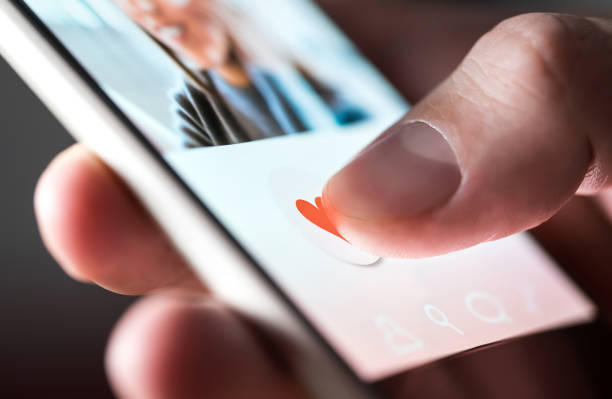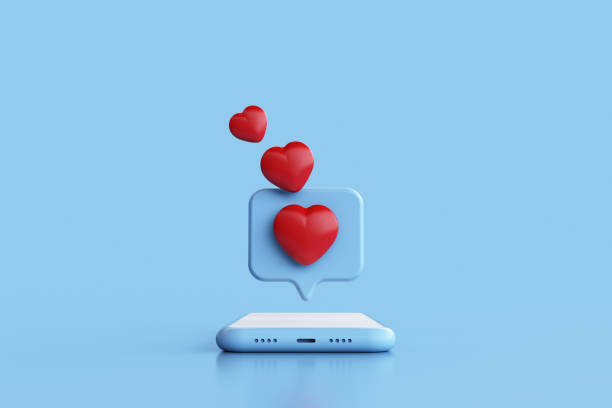In today’s digital age, dating apps have become a quintessential part of the modern love story, revolutionizing the way we meet and interact with potential partners. One common feature that often sparks interest is the “heart notification.” This article explores the role and significance of heart notifications in dating apps, helping users navigate their love-finding journey.
What is a Heart Notification?
In many dating apps with heart notifications, this feature serves as a direct indication of interest or a match. When someone likes your profile or you both like each other, these apps typically send a heart-shaped notification to inform you.
- Immediate Feedback: Allows users to see who has liked them instantly.
- Engagement Encouragement: Motivates users to interact with the app more frequently.
- Visual Appeal: The heart symbol universally represents love, making it an attractive and intuitive icon for users.
Popular Dating Apps with Heart Notifications
Several popular dating apps use heart notifications as a way to engage users. Each app has a unique way of integrating this feature, tailoring it to fit the app’s specific interaction style and user base.
Tinder
Tinder, one of the pioneers of the swipe-based dating model, utilizes heart notifications as a means to indicate mutual interest between users. When a user swipes right on another user’s profile, indicating interest, and the other user reciprocates by swiping right on their profile as well, a heart notification is triggered. This notification serves as a visual cue to both users that there is a mutual attraction, prompting them to initiate a conversation and potentially pursue a connection.
| App | Heart Notification Trigger |
| Tinder | Mutual right swipes |
Bumble
Bumble distinguishes itself from other dating apps by putting women in control of initiating conversations. In the context of heart notifications, Bumble follows a similar pattern to Tinder but with a twist. When two users mutually swipe right on each other’s profiles, indicating mutual interest, Bumble sends a heart notification to both users. This feature aligns with Bumble’s ethos of empowering women to make the first move while also fostering a sense of reciprocity and mutual consent in the matching process.
| App | Heart Notification Trigger |
| Bumble | Mutual right swipes |
Hinge
Hinge takes a slightly different approach to heart notifications compared to Tinder and Bumble. Rather than relying solely on swipes to indicate interest, Hinge encourages users to engage with specific aspects of each other’s profiles. When a user likes a particular photo or prompt on another user’s profile, Hinge generates a heart notification for the recipient. This personalized approach not only signals interest but also provides users with insights into what aspects of their profiles are resonating with others, facilitating more meaningful connections.
| App | Heart Notification Trigger |
| Hinge | Likes on specific profile content |
The Impact of Heart Notifications on User Behavior

Dating apps with heart notifications can significantly affect how users interact with the app. The anticipation of receiving a heart can increase user engagement and time spent on the app.
- Increased Activity: Users often check the app more frequently after receiving a heart notification.
- Positive Reinforcement: Heart notifications can create a positive feedback loop, encouraging further interaction.
- Behavioral Insights: Apps can analyze how users respond to heart notifications to improve user experience.
Conclusion
Dating apps with heart notifications offer a dynamic and engaging way to connect with potential matches. These notifications not only inform users of mutual likes but also encourage continued interaction with the app, making them a pivotal feature in the digital dating landscape. Whether you’re a seasoned user or new to the online dating scene, understanding how these notifications work can enhance your experience and increase your chances of finding a meaningful connection.
Understanding the mechanics and effects of heart notifications on user behavior provides valuable insights into the psychological impact of digital interactions. By fostering immediate and visually appealing feedback, dating apps with heart notifications continue to shape the way modern relationships are formed, one heart at a time.
FAQ
Typically, heart notifications are enabled by default. However, you can check your app’s notification settings to ensure they are turned on.
This depends on the app. Some apps, like Tinder, require a premium account to see who liked you before you like them back.
While heart notifications indicate that someone has liked your profile, it’s always good to engage in conversation to determine genuine interest.
If you feel overwhelmed, consider adjusting your match criteria or notification settings to reduce the frequency.
